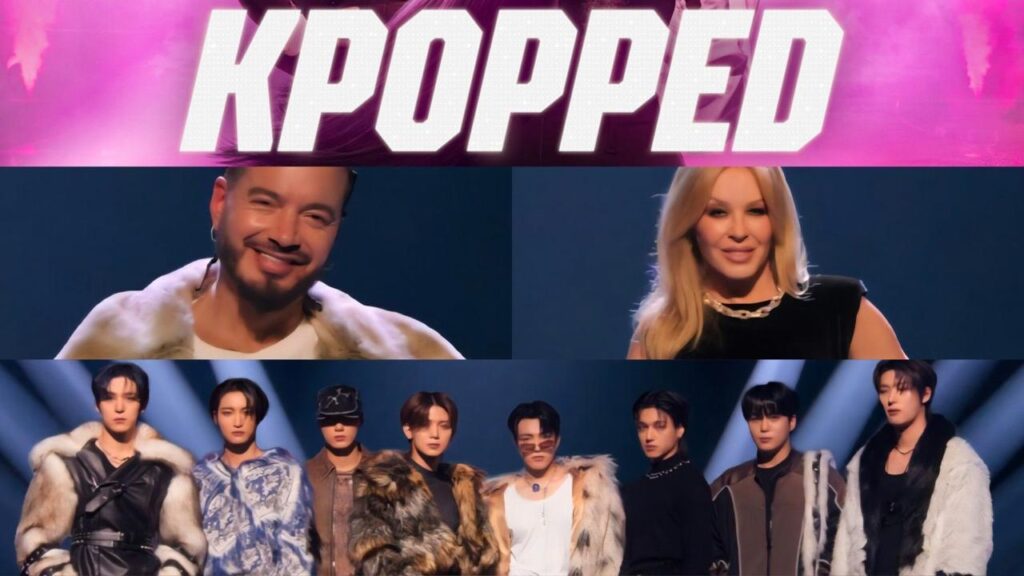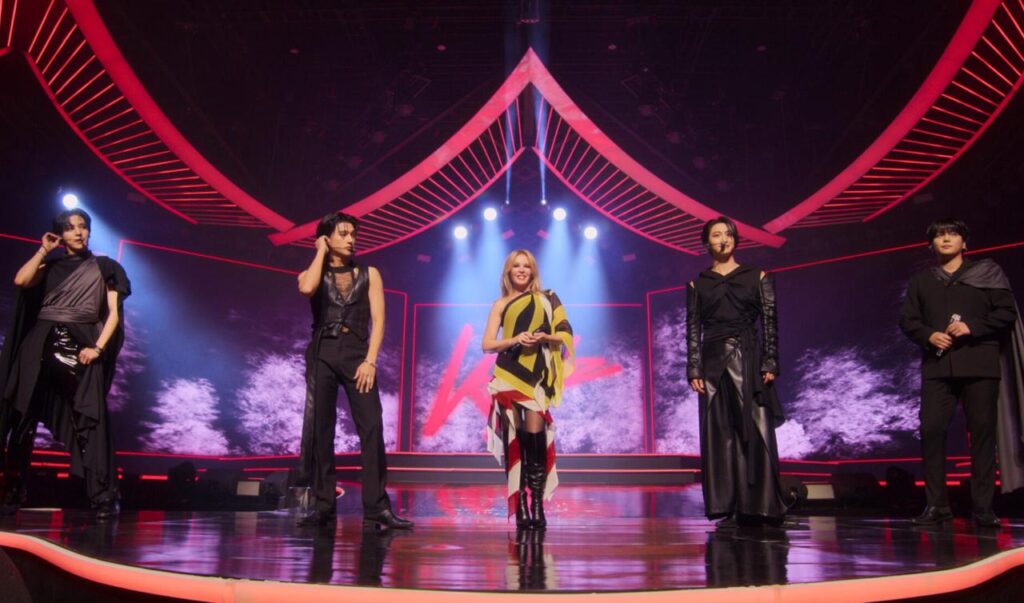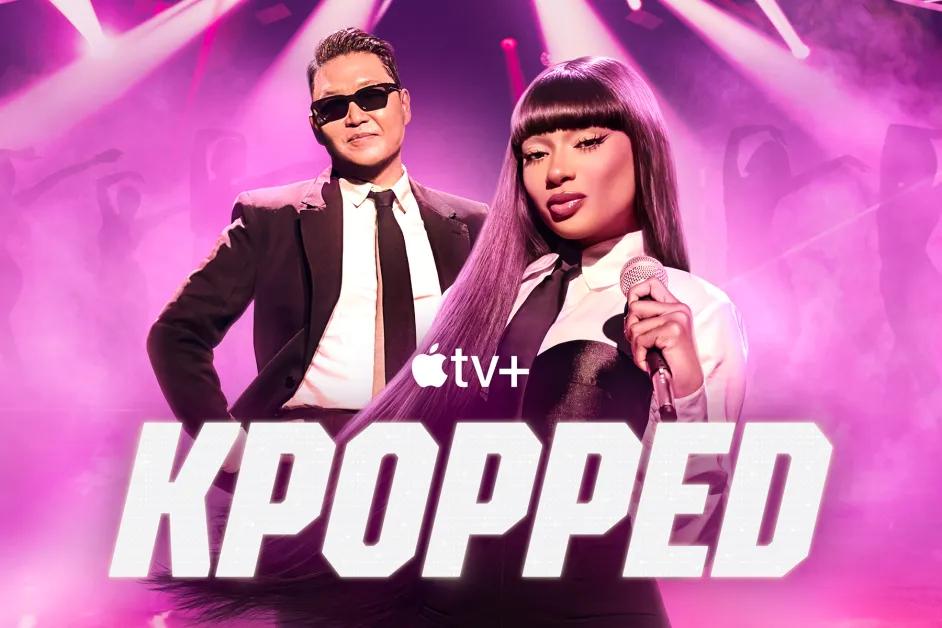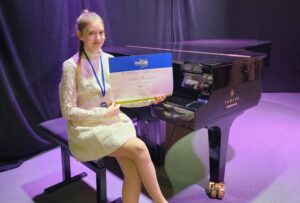The rise of K-Pop has been one of the most defining shifts in global popular music over the past decade. Apple TV+’s new series KPOPPED takes this shift to the stage, presenting itself as an ambitious experiment. Consisting of eight episodes, the production brings Western pop stars together with K-Pop groups in a “song duel” format. All episodes premiered simultaneously on Apple TV+, available exclusively to subscribers.
The show is hosted by Korean-American actress Soojeong Son, with Megan Thee Stallion and PSY as two of its most prominent figures—an early sign of the project’s intent to merge distinct musical traditions under one roof. PSY, one of K-Pop’s most recognizable names, embodies the genre’s global identity, while Megan Thee Stallion reflects the vitality of contemporary hip-hop. The presence of Lionel Richie and Megan Thee Stallion in the production team brings both the legacy of pop music and the pulse of modern hip-hop, creating a cross-genre spectacle.
One of the most talked-about moments came in episode five, with ATEEZ’s split performances. Seonghwa, Jongho, Yunho, and Wooyoung joined Kylie Minogue on “Can’t Get You Out of My Head,” blending the electronic pop aura of the early 2000s with K-Pop’s theatrical visuality. Meanwhile, Hongjoong, Mingi, San, and Yeosang performed “Mi Gente” with J Balvin, fusing Latin rhythms with ATEEZ’s razor-sharp choreography. Social media quickly labeled these stages “iconic” and “historic.”
Another nostalgic yet energetic collaboration paired Spice Girls with ITZY. Emma Bunton and Mel B joined ITZY on stage for “Wannabe” and “Say You’ll Be There.” The Spice Girls revived the collective memory of a generation, while ITZY infused the set with contemporary dynamism. Ideally, fans would have loved to see the Spice Girls reunited in full, but even this partial lineup offered audiences a rare moment.

Of course, KPOPPED is not limited to these examples. The lineup also included STAYC, JO1, and Kep1er, matched with artists such as Kesha, Eve, Vanilla Ice, and Taylor Dayne. At times surprising, at times mismatched, these encounters embody the show’s central ambition: to generate fresh energy out of collisions.
Still, the series raises questions. By placing Western hits at the center, K-Pop groups sometimes risk being framed as “accompanists.” Yet, in reality, it is often the K-Pop performers who drive the energy of the stage. ATEEZ’s collaborations with J Balvin and Kylie Minogue or ITZY’s performance with the Spice Girls highlight K-Pop’s discipline and mastery of visual performance at its peak.
The Western music industry has long recognized K-Pop’s global influence through collaborations, duets, and festival appearances. What makes KPOPPED distinctive, however, is its ability to bring back timeless Western hits and their original performers—many of whom are rarely seen on stage today—and position them alongside new generations of idols. Pairings such as Kylie Minogue, Spice Girls, or Patti LaBelle with K-Pop stars bridge generations, while the inclusion of J Balvin and Megan Thee Stallion underscores the cross-border potential of music. In this sense, the show’s greatest success lies in situating K-Pop at the very center of global music history.

For Apple TV+, KPOPPED expands a strategy that has been strengthened by the visibility and accolades of prestige originals like Severance and Silo. With this cross-cultural project, the platform signals its intent to reach global audiences. Apple’s investment in KPOPPED not only diversifies its content library but also highlights its desire to tap into the heart of global pop culture. This raises a question: “Will similar projects follow?” Given Apple’s selective content approach, the attention KPOPPED has received could very well encourage more music-centered productions. Competitors like Netflix, Disney+, or Amazon are likely to follow suit. The global rise of K-Pop, coupled with the visibility of cross-cultural programming, shows that such projects are no longer niche but a strategic showcase.
For now, the performances remain available only within the series, with no official release of audio recordings. Yet one can imagine how impactful it would have been had Apple Music released them as exclusives. As streaming services increasingly compete through exclusive catalogs—much like in film and TV—global projects like this could enhance brand value while offering audiences a unique experience. An eventual release of KPOPPED tracks as an album remains a possibility, though no announcement has been made to date.
Beyond its role as a cultural milestone, KPOPPED also raises the question of why similar large-scale music programs cannot be produced in Turkey. The contrast is striking. For years, Turkey has not delivered a noteworthy music program. Television remains confined to competition formats, while digital platforms shy away from investing in music-focused content. Abroad, Apple Music and Spotify are developing live performance series, exclusive studio sessions, and editorial projects, but they deem similar ventures in Turkey “unnecessary.” Behind this lies both the relatively small market size and the lack of institutional infrastructure in Turkey’s music industry. The sector still largely survives on individual efforts and the energy of independent producers. Without attractive conditions for international partnerships, it is unlikely that projects of this scale will reach Turkey any time soon.
Link to Original Article:












Be First to Comment